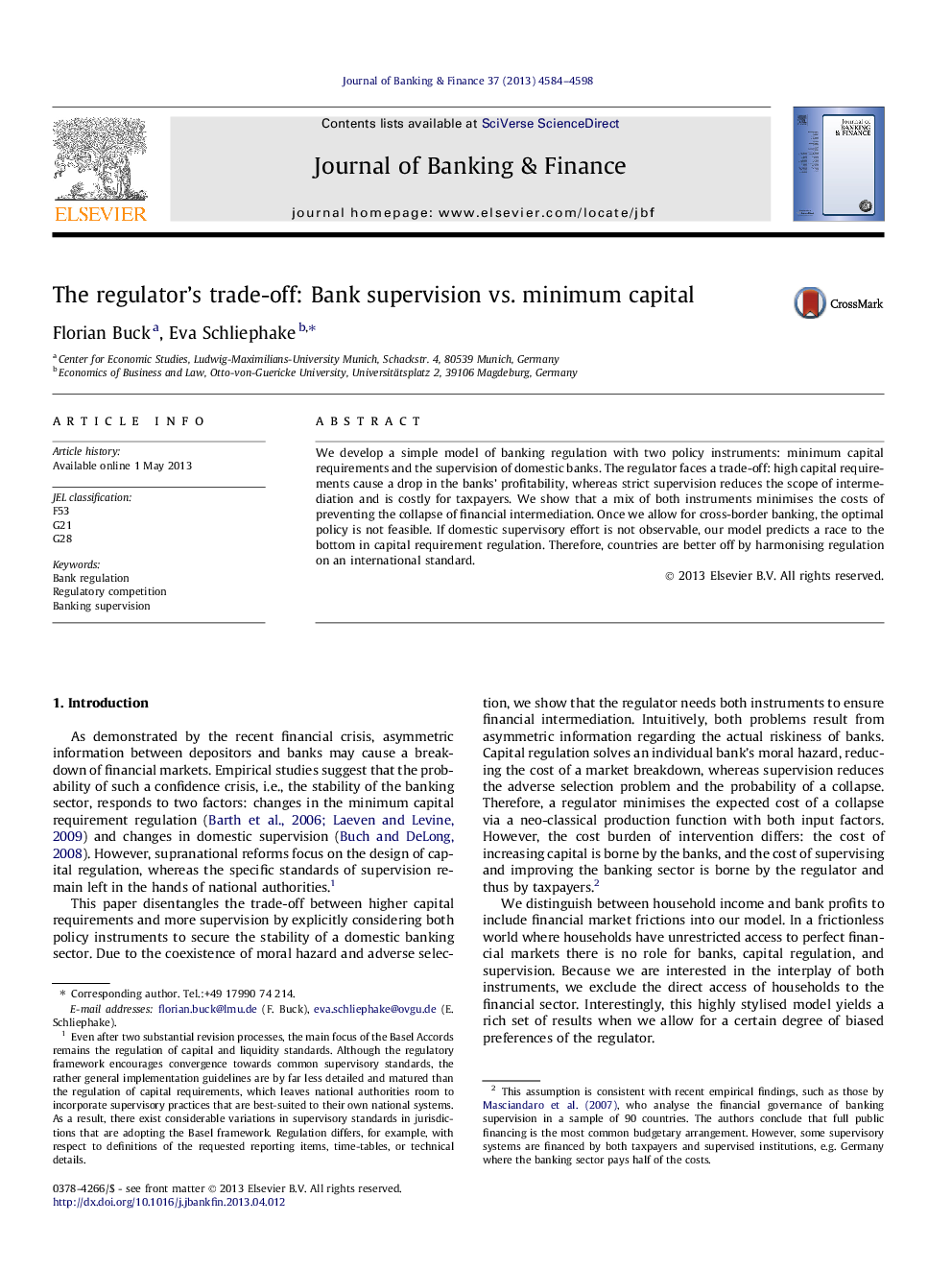| Article ID | Journal | Published Year | Pages | File Type |
|---|---|---|---|---|
| 5089177 | Journal of Banking & Finance | 2013 | 15 Pages |
â¢We analyse the efficient mix of capital regulation and banking supervision.â¢Within a feasible set, both instruments are substitutes.â¢The optimal policy is not feasible if we allow for regulatory competition.â¢An agreement on international minimum capital standards is self-enforcing.â¢International capital regulation reduces the average supervisory effort.
We develop a simple model of banking regulation with two policy instruments: minimum capital requirements and the supervision of domestic banks. The regulator faces a trade-off: high capital requirements cause a drop in the banks' profitability, whereas strict supervision reduces the scope of intermediation and is costly for taxpayers. We show that a mix of both instruments minimises the costs of preventing the collapse of financial intermediation. Once we allow for cross-border banking, the optimal policy is not feasible. If domestic supervisory effort is not observable, our model predicts a race to the bottom in capital requirement regulation. Therefore, countries are better off by harmonising regulation on an international standard.
